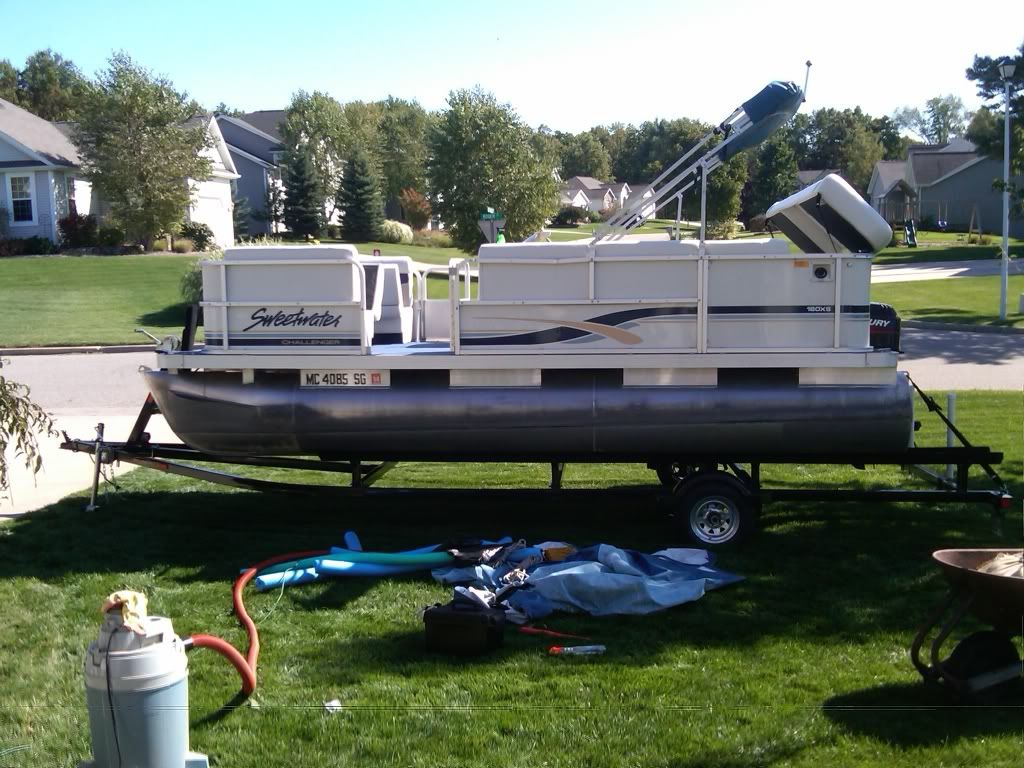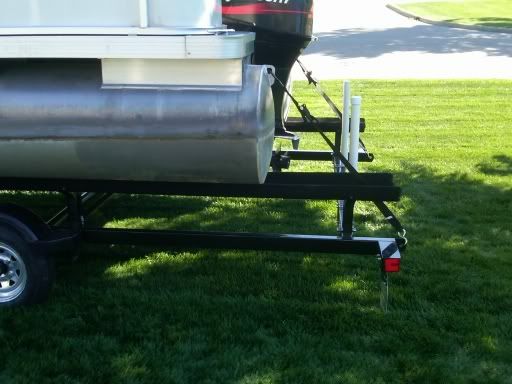Bamaman wrote:Move the boat to the back of the bunks.
Move the winch/bow support back.
Check the weight on your hitch/trailer ball. Is it 10% or more of the total boat/trailer weight? It should be.
Make sure that you have one or two helpers--they may need to jump onto the tongue as you move the pontoon boat back.
If it were me, I'd get the scale ready and put a block on it. Weigh the block by itself first.
You should know the dry weight of the pontoon boat itself. Calculate 6lbs/gallon for the fuel in the tank. Add the weight of the trailer by itself plus any gear. That's the total weight. Find 5% of that total weight. Find 10% of that total weight. This is your tongue weight range.
Now back to the pontoon boat, I'd winch it slowly forward while someone's monitoring the weight (remembering to subtract the block's weight). Remember that you may not have a full fuel tank when you're doing this. If that's the case, try to split the weight difference between 5-10% and you should be safe.
If the tongue weight is too heavy then you're lifting weight from your towing vehicle's front. If the tongue weight is too light the trailer will fishtail down the road. If you aim for 7.5% of the total weight then you're probably good for both empty- and full-fuel situations.
It's a good idea (and the law) to use straps on the stern side when trailered; specifically they said that it needs to be properly secured. And depending upon the state, you may be required to have trailer brakes depending upon the max weight.



